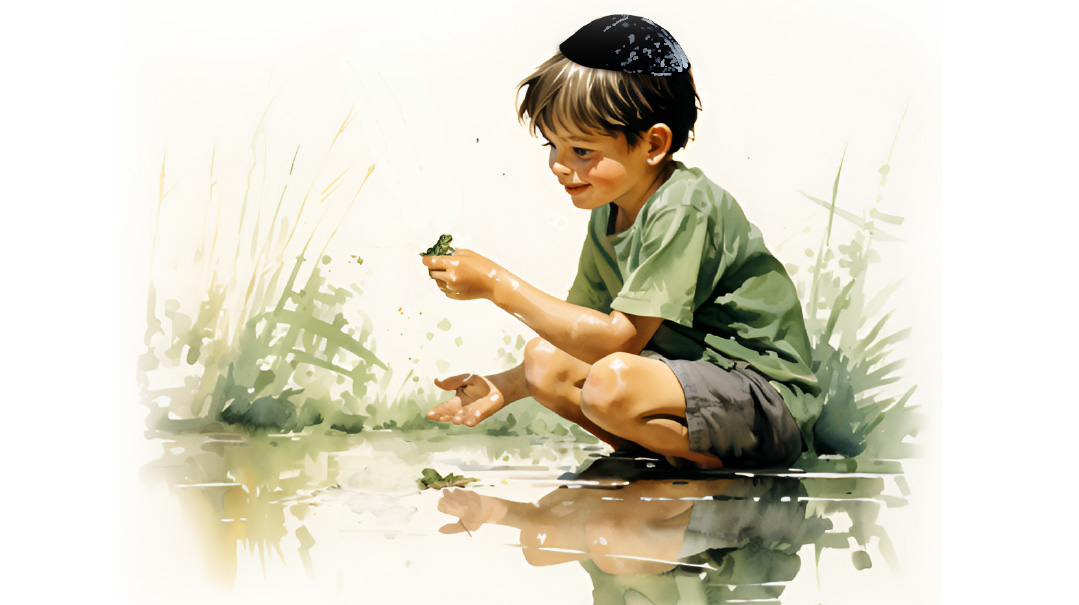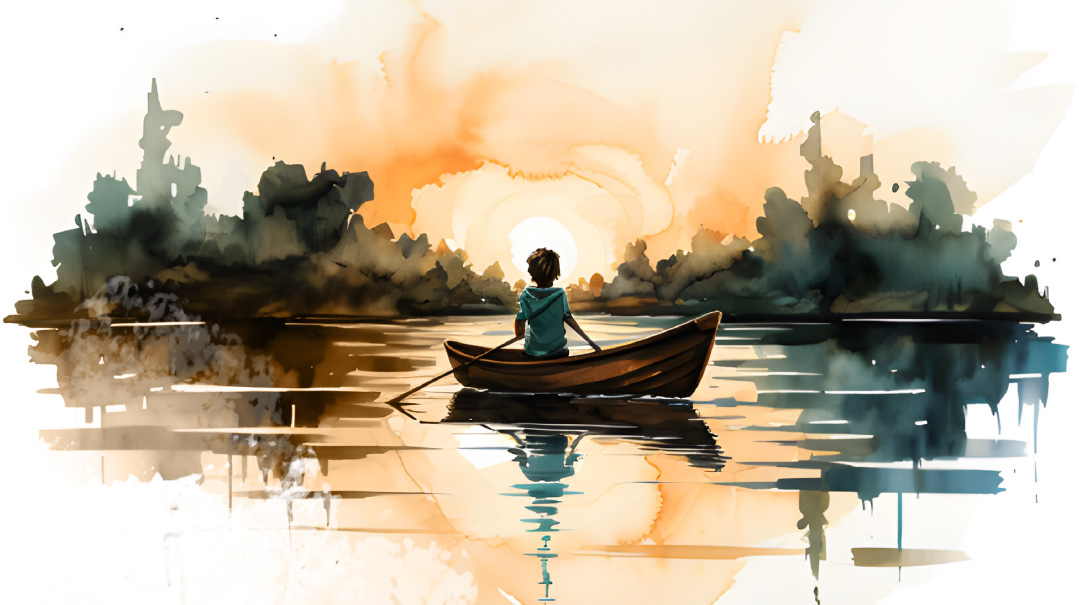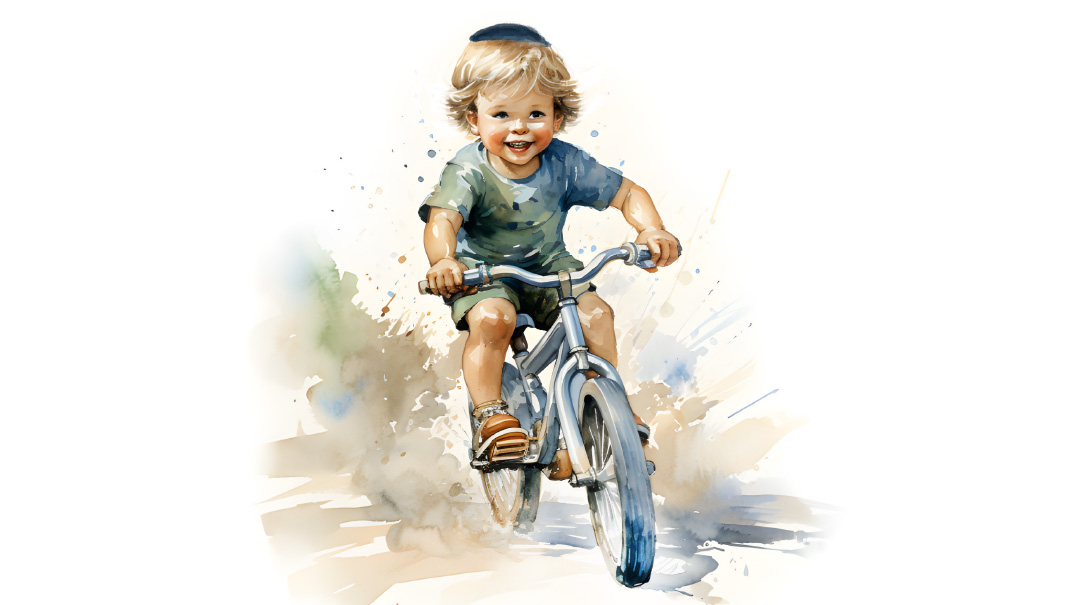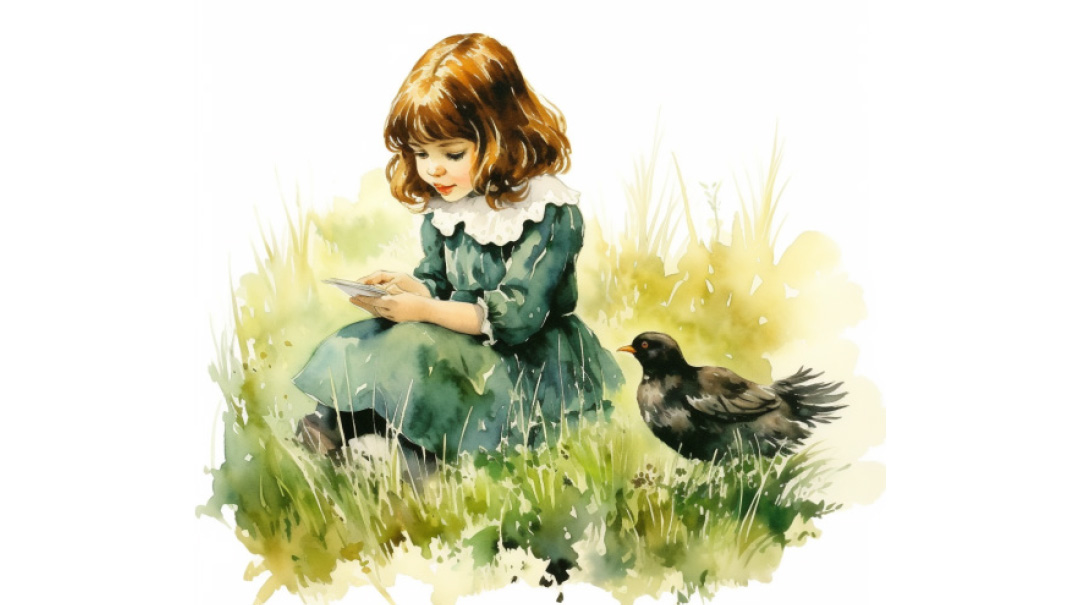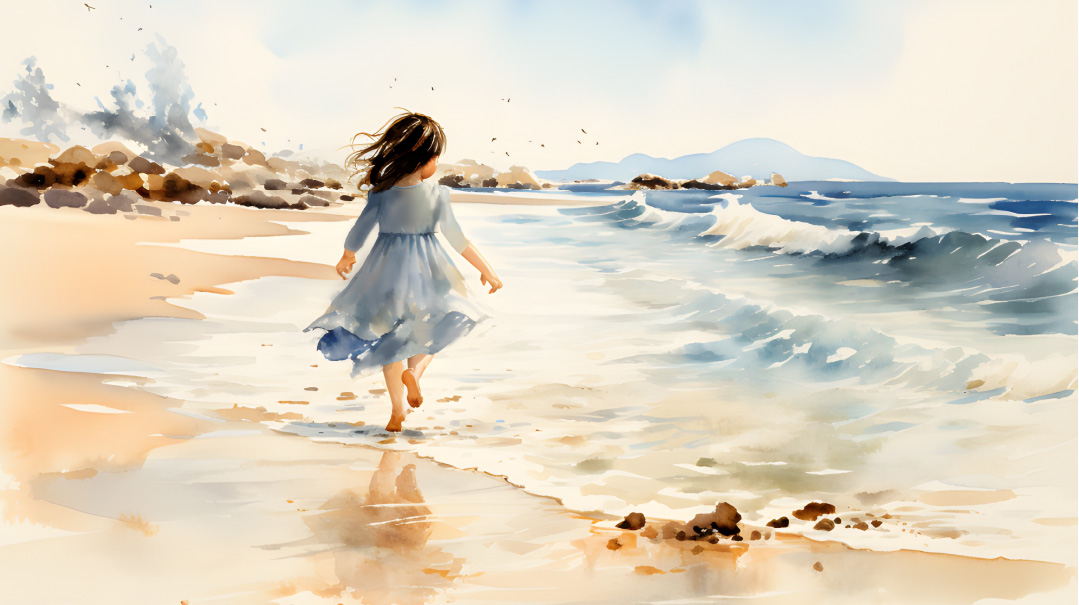Breezy on the Balaton
| August 22, 2023Lazy days on our Hungarian lake
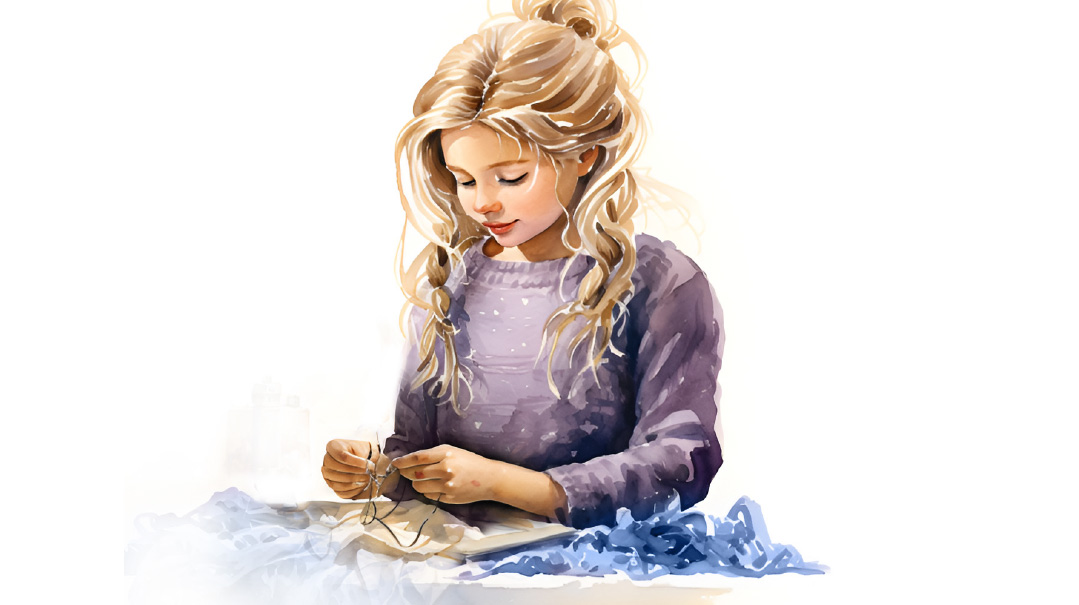
We might not have appreciated the small Hungarian beach village with its gravel sidewalks and dirt roads, or my grandmother’s private little home on the shores of the lake. But those were the textures and smells of my young life, and I’m still on the lookout for the summer scent of fresh-mowed grass
Trigger: Cool breeze and overcast sky on a summer day
Location: Lake Balaton in Balatonszeplak, Hungary
Come summer, most children in the ’80s went to day camp or sleepaway camp. However, every few years, my mother, younger brother, and I would fly from Baltimore, Maryland to Hungary for a family visit. The trip was a minimum of nine hours, as there were no direct flights: We’d take the red-eye from Baltimore to Heathrow Airport in London, and after a short layover, we’d board the plane to Ferihegy Airport in Hungary.
My grandmother, Nagymama, and several other relatives from my mother’s side remained in Hungary after the Holocaust and the Hungarian Revolution of 1956. None of them were frum.
We’d usually arrive in Hungary in the early evening, where Uncle Tomi, my mother’s brother, would be waiting for us at the airport. He and my mother would immediately launch into a conversation in rapid Hungarian, catching up on each other’s lives the whole drive home. Once we arrived at Nagymama’s beautiful antique-filled apartment in Budapest, there were hugs and kisses all around before my brother and I grabbed a quick bite and went to bed.
A day or two later, after we gained our bearings, we would pack up our pots, pans, and enough kosher food for several weeks. Then we’d all board the train to Lake Balaton.
K
nown also as the “Hungarian Sea,” at 50 miles long, Lake Balaton is the largest lake in Central Europe. The iconic area is a popular European vacation destination, compared to the Hamptons; small towns on the shore are dotted with country homes while bigger cities have modern hotels. There is an annual sailboat race as well as a marathon swim-off. Today, people also kayak and enjoy other water sports, and near the water, there are various bike trails or quaint seaside shops, depending on the city. The area is also close to the country’s famous vineyard regions.
I remember the main square with all the shops. From there, you could either walk or take a cab to your gan eden in one of the quiet neighborhoods filled with beautiful flowers and the simple side-by-side vacation homes. The structures were white concrete with green or orange roofs, a side balcony, and sometimes an upper balcony. Wrought iron decorated the windows and fences, sometimes with designs, such as a sun with stretched-out rays. Homeowners who were motivated to plant their own vegetable gardens grew paprika (peppers) and paradicsom (tomatoes) on the vine, which tasted divine.
Balatonszeplak, where my grandmother owned a home, was a small beach village with dirt roads. There were gravel sidewalks embedded with footprints from other walkers. We could hear gravel crunching beneath our feet with every step. Even the smell was unique, clean air mixed with flowers and freshly mowed grass. To this day, I keep my windows open as long as possible, in all seasons, to try and recapture that fresh scent.
The main mode of transportation was the bicikli, a bike with a wire basket in front. Our neighbors included another Hungarian grandma whose children visited from Germany. I remember hearing lots of German, which as a daughter of survivors shook me up a bit. (Recently I learned that the reason they summered there, especially during Communism, was because those who lived on both sides of the Berlin Wall could not get together there but could meet up at the Balaton.)
As a teen, I didn’t realize what a luxury it was for my grandmother to own a home on the shores of the Balaton. The house was simply yet comfortably furnished. You could enter through either the front door, which took you to the kitchen, or — as we did most often — through the side balcony, which led into the living room and dining area. Upstairs there were three bedrooms and a full bathroom. I was always excited to go to my small room — my own room! — facing the yard. It had deliciously plush blankets that were a downy, feathery heaven. Many years later, after I was married, my grandmother gifted us with these types of down blankets, while my brother asked for the big parnak (pillows).
Nagymama hung rugs all over the house, including on the walls, from my grandfather’s rug factory. In fact, the Communists almost took the factory from him, but he paid very high taxes to keep it.
Across from our cottage was a pub-type restaurant that was quiet during the day but would come alive in the evening, fairy lights twinkling, with the locals meandering out for a relaxing night out. Everything in Balatonszeplak closed early, with the exception of the pub, which was open until about 10 p.m. On rare occasions, my mom would alleviate my boredom and take me to the pub, where she’d treat me to an ice-cold Coca-Cola in one of those vintage glass bottles.
Our days were long and lazy, a summer haven for my hard-working single mom, a trained chemist who worked in a research lab. I would fill my time with conversations and pantomimes with my Nagymama; between my limited Hungarian and her even more limited English, it made for some good laughs.
Like any good Hungarian grandmother, Nagymama tried teaching me to cook. Cooking lessons consisted of making toast on a small, round metal plate that sat atop the flame, as there was no toaster. Of course, we enjoyed our Hungarian dried salami (sometimes fried) with piritos (toast), and fresh tomatoes from the neighbor’s garden.
Nagymama’s hobby was kezimunka, which literally means handiwork, a type of embroidery involving sewing flowers or shapes in a pattern on tablecloths, clothing, and wall hangings. My grandmother would gift her tablecloths to friends and family. One summer, she taught me the fine art of kezimunka, and I worked painstakingly on the little flowers that were etched on a small, white cloth square we had purchased together.
There was the daily bike ride, sometimes with my brother, sometimes solo. Of course, we would make our way to the lake. It was quite shallow for miles on our end, which made it child-friendly, and families spent hours outside, swimming and playing in its calm green waters. Privately-owned pier-like structures made of wood planks jutted above the water in random spots, and part of the fun was wading in the water, bags above our heads, and setting up camp for the day. We’d sigh in relief when we reached our own little pier, climb up the wooden ladder, set our bags down, descend, and then — at long last — splash in the refreshing waters.
Bike, eat, swim: That was our schedule. This was followed by trips several times a week to get sweet fagyi (ice cream), and once in a blue moon to a mini-amusement park in the next town over. I think we even walked there in the cool night air, wearing what we called sports jackets (i.e., track suits), as lights and sounds from the rides punctuated the quiet. Oh, how fun it was to go out at night!
When we ran out of things to do, we would make the trip to Siofok, the bigger city. First, we took a bus that came to the center of the small town, which took about 10 to 15 minutes, and from there a train, which was another 15 minutes. In Siofok, we purchased souvenirs or, even more exciting, English reading material, mainly the international Time magazine.
T
he summer when I was 17, before I went to seminary, it dawned on me that maybe there was some Jewish history in the Balaton area.
“Perhaps we can explore it?” I asked Mom.
“Indeed, there is a Jewish hotel on the other side of the lake, in Balatonfured,” Mom told me. “It was quite popular before the war.”
Balatonfured was where all the Yidden went pre-war, similar to the Catskill Mountains in New York.
My mom and I took a ferry to the other side of Lake Balaton. When we alighted, I picked up on the feel of the town, the old-world vibes, so different from Nagymama’s. We walked up a shady path to a concrete building that was painted yellow, typical of Hungarian design, and I could sense the history that lay behind the doors. It was very quiet; the building itself seemed to be resting.
A frum older man with a long beard answered our knocks. He didn’t look like the sort of person one would see in these parts. He greeted us — I imagine my mother had called in advance — and told us he was so happy to see a frum Jewish girl.
Apologizing profusely that he had no candy (a Zaidy still!), the man brought out the only treat he had on premises: an Osem tea biscuit. I was ecstatic with this taste of home.
The adults chatted for a bit in Hungarian, and then we bid him farewell. Mom and I got back on the ferry. The return trip was quiet. I spent most of it in thought, gazing at the beautiful blue sky, the still waters, and the colorful sailboats as we headed back to Balatonszeplak.
The summer seemed to stretch endlessly in those days, when in reality it was only a couple of weeks. My mom relaxed fully on our summer trips, enjoying the slow pace of reading, sunbathing, playing badminton outside, and of course, spending time with her mother and family in Budapest. As a mother now, with my own family and responsibilities, I can appreciate what this trip meant to her. And every once in a while, when the breeze blows a certain way or the floating clouds in the sky take on a white-grey hue, my mom, brother, and I look at each other, smile, and think, Oh, the Balaton.
Judy Landman lives in Baltimore, Maryland, where she has been teaching preschool boys for over 20 years. She facilitates writing workshops and recently published the book, Seasons of the Rain.
(Originally featured in Mishpacha, Issue 975)
Oops! We could not locate your form.

